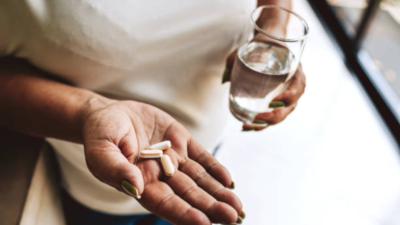Blood Pressure: Morning vs evening: What’s the best time to take blood pressure medicine? |

If you pop your blood pressure pill in the morning simply because your doctor said so, or because that’s what your routine looks like, you’re not alone. But did you know that when you take your medication might be just as important as what you take?Yes, timing could be the secret ingredient that makes your blood pressure pill work better, and maybe even save your life. Recent studies are shaking up old-school advice and showing that evening doses could offer extra protection against heart attacks, strokes, and even early death in people with hypertension. So, what’s the real deal behind morning vs evening medication for high blood pressure?
The traditional take: Morning is best… or is it?
Most people with high blood pressure are told to take their medicine first thing in the morning. It kind of makes sense: you wake up, you take your pill, you move on with your day. Easy. Doctors often default to this timing because blood pressure tends to surge in the morning—around the time your alarm clock goes off.
Poll
When do you think is the best time to take blood pressure medication?
A 2022 study published in The Lancet observed more than 21,000 people. “Half were randomly assigned to take their drugs between 6 a.m. and 10 a.m., while the others took their doses between 8 p.m. and midnight. After a median follow-up of just over five years, the percentage of people who had a stroke, heart attack, or died from vascular disease was nearly the same in both groups (3.7% for the morning dose vs. 3.4% for the evening dose),” a Harvard report said citing the study. That morning spike? It’s not random. It’s caused by your body’s natural rhythm (circadian rhythm), which gears up for the day by pumping out stress hormones like cortisol and adrenaline. The thinking goes that taking your pill in the morning helps counteract this spike.But there’s a twist.
The new wave of research: Night might Be right
In 2019, a game-changing study from Spain turned heads in the medical world. It followed over 19,000 people with high blood pressure for an average of 6 years and compared those who took their meds in the morning versus at bedtime.The results? Jaw-dropping. The bedtime group had:
- 40% lower risk of heart attacks
- 34% lower risk of strokes
- 66% lower risk of cardiovascular death
That’s not a small difference. That’s a massive win for evening dosing.The researchers explained that blood pressure naturally dips at night. But in people with hypertension—especially older adults or those with diabetes—that dip often doesn’t happen. This “non-dipping” pattern is linked to higher heart risks. By taking meds at night, you help restore that dip, giving your heart a rest while you sleep.
So… should you switch to night dosing?
Not so fast. The “best” time to take your blood pressure medicine isn’t one-size-fits-all. Here’s what you need to consider before switching:
1. What kind of medication are you on?
Some blood pressure meds, like diuretics (aka water pills), are notorious for increasing bathroom trips. Taking those at night could mess with your sleep. Others, like ACE inhibitors, beta blockers, or ARBs, might actually be better suited for nighttime use, depending on your body’s pattern.
2. Do you have a “non-dipping” BP pattern?
Doctors sometimes recommend 24-hour ambulatory blood pressure monitoring—a device that tracks your BP during the day and while you sleep. If your pressure doesn’t fall at night (non-dipper), you might benefit more from evening dosing.
3. How’s your routine?
Let’s be honest: meds only work if you actually take them. If nighttime dosing means you’ll forget, miss doses, or double up by accident, it might backfire. Your routine matters more than you think.
4. Are you taking multiple meds?
Sometimes, a split schedule works best—one in the morning, another at night. It’s like giving your heart a bodyguard shift change.
What should you do?
Don’t switch your schedule without talking to your doctor first. Blood pressure isn’t just a number—it’s a rhythm that dances to your body’s internal clock. What works for one person might not work for another.But here are a few takeaways you can run with if your BP is high despite medication, ask your doctor if evening dosing might help. If you have kidney disease, diabetes, or “non-dipping” BP, nighttime dosing could offer more heart protection. Avoid taking diuretics at night unless you love midnight bathroom marathons.Most importantly, be consistent. Skipping doses messes things up more than bad timing ever will.Whether you take your pill at 8 a.m. or 8 p.m., managing high blood pressure is about more than just popping pills. Diet, movement, sleep, and stress all play their part. Think of your medication as one spoke in a much bigger wheel.Disclaimer:The content in this article is intended for informational and educational purposes only and should not be considered a substitute for professional medical advice, diagnosis, or treatment. Always consult your physician or a qualified healthcare provider before starting any diet, supplement, fitness, or health program.





